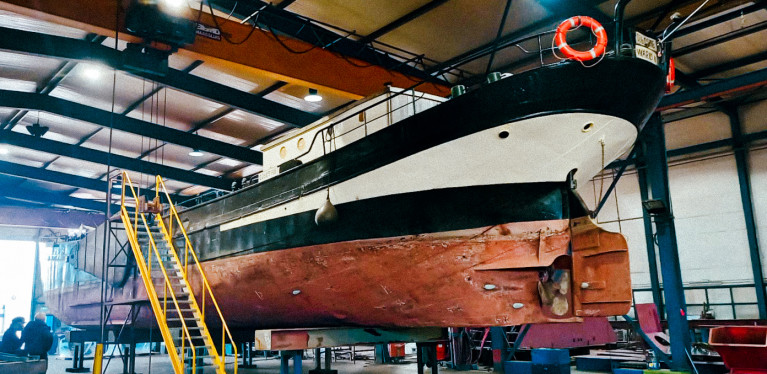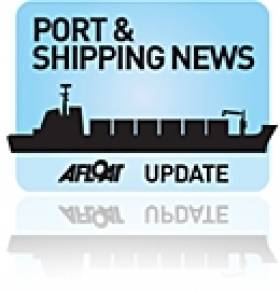Displaying items by tag: Sustainable Shipping
Dutch Shipyard to Retrofit EcoClipper's First Sailing Cargoship to Also Trade On the Irish Sea
The Talsma Shipyard and sustainable shipping company EcoClipper B.V. this week announced in Alkmaar, The Netherlands, in finalising a partnership to complete work on retrofitting sailing vessel De Tukker which is to trade in the North Sea, the Irish Sea and in the Baltic.
The Talsma Shipyard, based in Franeker is highly experienced in shipbuilding and retrofitting vessels. They will be responsible for the large-scale steel work construction on EcoClipper’s first cargo vessel, De Tukker as Afloat reported in January.
EcoClipper will use their own crew to work on maintenance, rigging and fitting out.
When Jelle Talsma, CEO of the Talsma Shipyard, joined on the first inspection of the ship he commented: "This ship is beautifully lined and well built. It is obvious that the former owners loved the ship and left us with many fine details. Yes, we will be happy to help EcoClipper to get this vessel trading again."
Last week De Tukker was moved into the shipyard's construction hall in Franeker.
The retrofit of the ship will include returning the day cabin and galley to their former use as cargo hold. A small deck house with a mess room will be positioned on deck, in front of the mizzen mast. All spars, standing and running rigging will be serviced and re-rigged.
When work is completed the De Tukker will be registered as a Sailing General Cargo Vessel.
Jorne Langelaan commented: “We are excited to partner with Talsma Shipyard for the retrofit of De Tukker. Not only is Jelle Talsma an expert in the field, but he is an avid sailor of traditional sailing vessels and shares many of the ideals and values that we have at EcoClipper.”
EcoClipper has launched a financing campaign for investors for the EcoClipper Coöperatie U.A. Investors are able to become part owners of the future fleet of sailing ships, including De Tukker.
Ship Scrubbers: Shipowners and Ports Call for Clarifications
#ShipScrubbers - The European Sustainable Shipping Forum) (ESSF) has called on European shipowners and port authorities urgently call for clarification of rules pertaining to use of scrubbers.
The EU Sulphur Directive is set to come into force in only a few months, on 01 January 2015. The new sulphur requirements impose that ships sailing in the SECAs (Sulphur Emission Control Areas-the Channel, the North Sea and the Baltic Sea) use bunker fuels with a sulphur content of maximum 0.1% or that the same level of emissions is reached by the use of alternative fuels or compliant abatement technologies.
Scrubbers have been identified as one of the few abatement technologies available allowing ships to reduce the sulphur content in their emissions. However, a lack of clarity in EU rules jeopardises their uptake. For further details ESPO has an update.































































